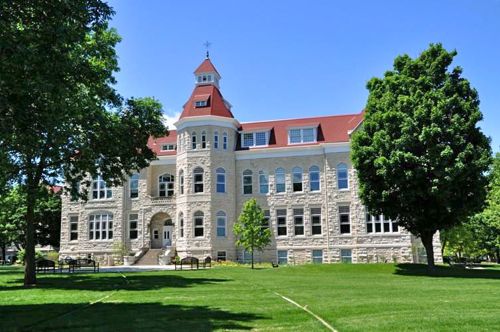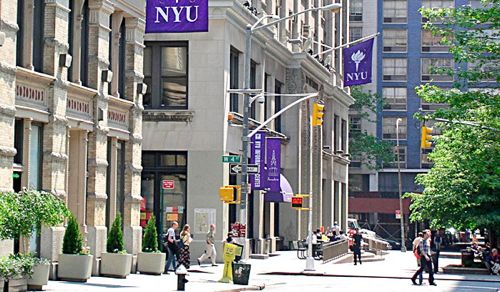|
DAVID J. WAGNER, PH.D.ARTS ADMINISTRATION AND MUSEUM STUDIESWUWM 89.7 Milwaukee Public Radio Interview The Role of the Arts in Cultural Transformation – A Stanford University MAHB Dialogue with David J. Wagner Stanford University MAHB Dialogue with David J. Wagner Additional Questions and Answers Click Here for Sample Arts Administration Course Description Click Here for Sample Museum Studies Course Description Click Here For YouTube Posts In 1975, my career was re-directed from the world of concerts to museums. After earning a bachelors degree in applied piano with a minor in voice, and being accepted into the Indiana University Music School as a Graduate Student, I took an elective course in Museum Studies as part of the curriculum for a Masters degree in Arts Administration from the Graduate School of Business, which I intended at the time, to lead to a career in concert management. At the time, I served on the Program Committee of the IU Auditorium Concert Series; I played piano on Saturday evenings at the Tudor Room of the IU Student Union; and I was a pianist on the IU Music Attractions series which farmed out student performers for concerts and other performances. (I already had considerable experience in concert management as a undergraduate having worked as a student assistant for Jack Cohan who was Concert Manager at the University of Wisconsin, Stevens Point Campus; and I had earned my way through school by performing as a soloist and accompanist each full summer and during the school year as an undergrad.) Teaching the Museum Studies course I took as an elective at IU was Dr. Wesley Hurt. In addition to being a Professor of Anthropology, he held a joint appointment as Director of The Indiana University Museum. I enjoyed his course tremendously, throwing myself into assignments and projects, and Dr. Hurt obviously picked up on that. Toward the end of the semester, he asked me if I would be interested in serving as a Graduate Assistant responsible for historical collection at the museum. I jumped at the opportunity, which, among other things, afforded me the chance to assist the Curator of Ethno-Musicology in the implementation of a Gamelan band exhibition, and to team up with the museum's Registrar to co-author its Collections Manual. This led to an Internship the next Summer at the Indianapolis Children's Museum as it was moving into a new facility that would make it the largest of its kind in the world, and in 1977, after graduation, an appointment at age 24, as Director of a fledgling art museum, which had been open to the public only four months in Wisconsin where I had grown up. Further information about Dr. Hurt can be found here: Wesley R. Hurt (1917-1997). Were it not for him, my career path would have never led me to work in museums. ~ David J. Wagner Academic Appointments
2012 Carroll University Arts Administration CourseDr. David J. Wagner's Arts Administration student, Shane Ebert, honored with Internship at Florentine Opera Fine Arts 120, 2012 Fall Semester Tuesdays 6:00 - 9:30 pm, MacAllister Hall 108 Interested in learning about visual or performing arts administration . . . or contemporary issues and challenges facing galleries, museums, arts centers, festivals, performing arts companies or symphonies? Interested in learning about arts funding . . . or budgeting, planning, programming, or marketing? Interested in a seminar featuring guest lecturers who are themselves nationally recognized arts administrators? Interested in a boost to give your arts career a one-up advantage?
Carroll University, founded in 1846, Old Main Hall Course Description In this seminar, students will explore theories, applications, and processes of arts administration practiced today. The course will focus on management objectives, strategies, and plans for a range of arts and cultural organizations including but not limited to museums, galleries, theaters, symphonies and other performing arts companies or ensembles, as well as related educational organizations. Though primarily focused on non-profit organizations, principles of arts administration taught in this course will carry over to management of for-profit art organizations such as performing artist management companies and commercial art galleries. The course will be led by David J. Wagner, a former director of non-profit visual and performing arts organizations and president of his own for-profit museum exhibition production company. Nationally recognized guest speakers who have held positions as leaders in their respective fields will add diverse perspectives and expertise to class discussions of major topics. Topics will include business planning and budgeting, stewardship by trustees and other stakeholders, fund-raising, legal aspects of arts administration (e.g. contracts), personnel, facilities management, program development, marketing, long-range and strategic planning, evaluation, and other aspects of arts administration that inform and instruct decision-making in arts and cultural organizations today. Emphasis will be on case-study issues and challenges confronting arts administrators today, many of which will tie-in to presentations by guest speakers. Readings will be available on Electronic Reserve through the Carroll University Library. Students will also have the opportunity to focus on specifics types of arts/cultural organizations and related administrative issues. FAR 120 A Intro to Arts Admin Syllabus, Wagner, click here. (PDF 29KB)For information about Carroll University, and enrollment, click here. FAR 120 A: Introduction to Fine Arts Administration
New York University Graduate School Museum Studies Department Course"Local Museums, Historic Houses and Sites"
New York University, Founded in 1831 Books on the Required Reading List will be available at the NYU Bookstore. Excerpted materials on the Required Reading List will be available for purchase as a packet at the Advance Copy Center. Additional Recommended Readings will be available on reserve in the Museum Studies Program Reference Center. Mid-Session Assignment: You have been retained as a consultant at a historic site, house or museum of your choice. The Board of Directors has retained you to advise on the desirability and feasibility of accreditation by the AAM (American Association of Museums). Write a three-page recommendation to the Board about your site. Final Assignment Option #1: You have just been hired as Executive Director of the You-Name-It Historical Society. One of the oldest in the country, with colonial buildings and collections, and grounds, the UNIHS has experienced an annual decline in attendance of 5% for each of the past 5 years. The Board of Directors has given you three months to recommend a plan to turn this trend around. Your assignment is to frame the parameters of the UNIHS as you envision it, i.e. define its collections, personnel, exhibits, educational programs, facilities, budget, board, etc., and describe your approach in a 4-8 page, double-spaced typed paper. Or Option #2: 4-8 page, double-spaced typed report describing your experience with The Lower East Side Tenement Museum exhibition, "Sitting Shiva: Lower East Side Immigrants Confront Death and Dying." (See separate Research Project handout for further details.) Guest Speaker / Field Trip Schedule
David J. Wagner, Ph.D. Davidjwagnerllc.com is the official website of David J. Wagner. |

